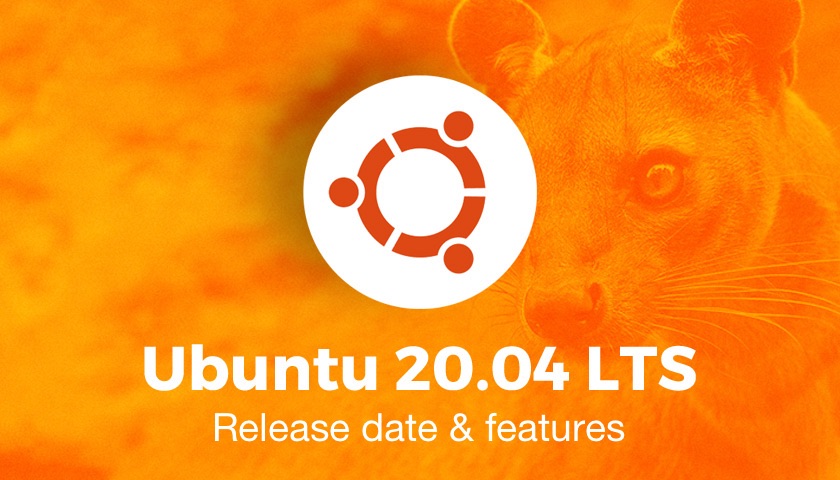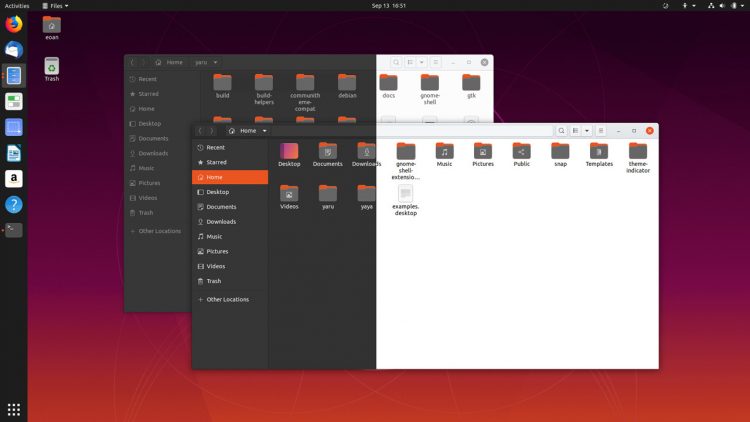Ubuntu 20.04 Release Date & Planned Features (Updated)
By Joey Sneddon·Updated Friday

With the Ubuntu 19.10 release successfully done, attention turns to the next major update: Ubuntu 20.04 LTS, which is due to be released on April 23, 2020.
We already know when Ubuntu 20.04 will be released, how long it’ll be supported for, and even what features it may have
This early in the release cycle — there aren’t even any daily builds yet — there isn’t an awful lot of information to go on, and few concrete plans are in place.
But we do know when Ubuntu 20.04 is due for release, how long it’ll be supported for, and even some early details on what it’s likely to include.
We keep this post continually updated
So read on to learn more details on key Ubuntu 20.04 LTS features, changes and improvements, more of which will be added to this post as and when they are revealed.
Ubuntu 20.04 ‘Focal Fossa’

The Ubuntu 20.04 codename is ‘Focal Fossa’.
This is a fitting moniker in many respects. The word ‘Focal’ means ‘centre point’ or ‘most important part’, while Fossa (as fans of the film Madagascar will know) is a cat-like predator native to the island of Madagascar.
Ergo Ubuntu 20.04 is being signposted as both an important and successful update.
Ubuntu 20.04 is the next long-term support (LTS) release of Ubuntu, and follows on from Ubuntu 18.04 LTS launched back in 2018 (and supported until 2023)
Every LTS release is supported for 5 years on the desktop and server.
Notable, this release will be supported for 10 years as an ‘extended maintenance release’ (ESM). ESM status is not free and is tailored towards businesses, industry and enterprise customers of Ubuntu Advantage.
Ubuntu 20.04 Release Date
The Ubuntu 20.04 release date is April 23, 2020.
This is the date listed on both Launchpad and the draft release schedule for Ubuntu 20.04, up on the Ubuntu wiki. Other important milestones throughout the Focal Fossa development cycle are also listed there:
Testing week: January 9, 2020
UI Freeze: March 19, 2020
Ubuntu 20.04 Beta: April 2, 2020
Kernel Freeze: April 9, 2020
Release Candidate: April 16, 2020
Another important milestone (not yet pencilled in) will be the first Ubuntu 20.04 point release. Why a point release? Because that’s when users of Ubuntu 18.04 LTS get notified of the new LTS and offered the chance to upgrade to it.
Planned Ubuntu 20.04 Features
Tradition dictates that Ubuntu LTS releases are relatively conservative when it comes to changes and new features, i.e. don’t expect many dramatic changes in Ubuntu 20.04.
That’s not to say there won’t be any new features or notable tweaks, it’s just that every nut and bolt of this release is carefully evaluated prior to inclusion on the basis of how it might affect the overall stability and maintenance of the release.
Or to put it another way, only features that Ubuntu developers can commit to supported for five years will make it in.

Among the changes is a new theme. Well, a new version of the current Yaru theme that use ‘purple’ as the main accent colour. There are also plans to alter the appearance of folder icons, as you can see in the screenshot above.
Other planned changes to Ubuntu 20.04 LTS include:
GNOME 3.36
Linux Kernel 5.5 (or newer)
Improved ZFS install support
New wallpapers
Smaller .iso image
Lightning extension added to Thunderbird
Multi-monitor support in GDM
Fractional scaling in Xorg session
Gaming-related improvements
Better GNOME Shell performance
Admittedly this list might not look like a lot right now, but don’t worry: it will grow over the coming 6 months as development kicks in to gear and plans gets underway.
Download Ubuntu 20.04
Ahead of the stable release in April 2020, you can download Ubuntu 20.04 daily builds directly from the Ubuntu CD image server.
Download Ubuntu 20.04 (daily build)
The ‘current’ daily live builds (do avoid pending) are created by a build system on a daily basis. Although they have passed a series of qualitative checks, they shouldn’t be considered stable.
FONTE: https://www.omgubuntu.co.uk/2019/10/ubuntu-20-04-release-features
todos os pacotes do Ubuntu podem ser encontrados em https://packages.ubuntu.com/
todos os pacotes do Linux podem ser encontrados em https://pkgs.org/



























































































































